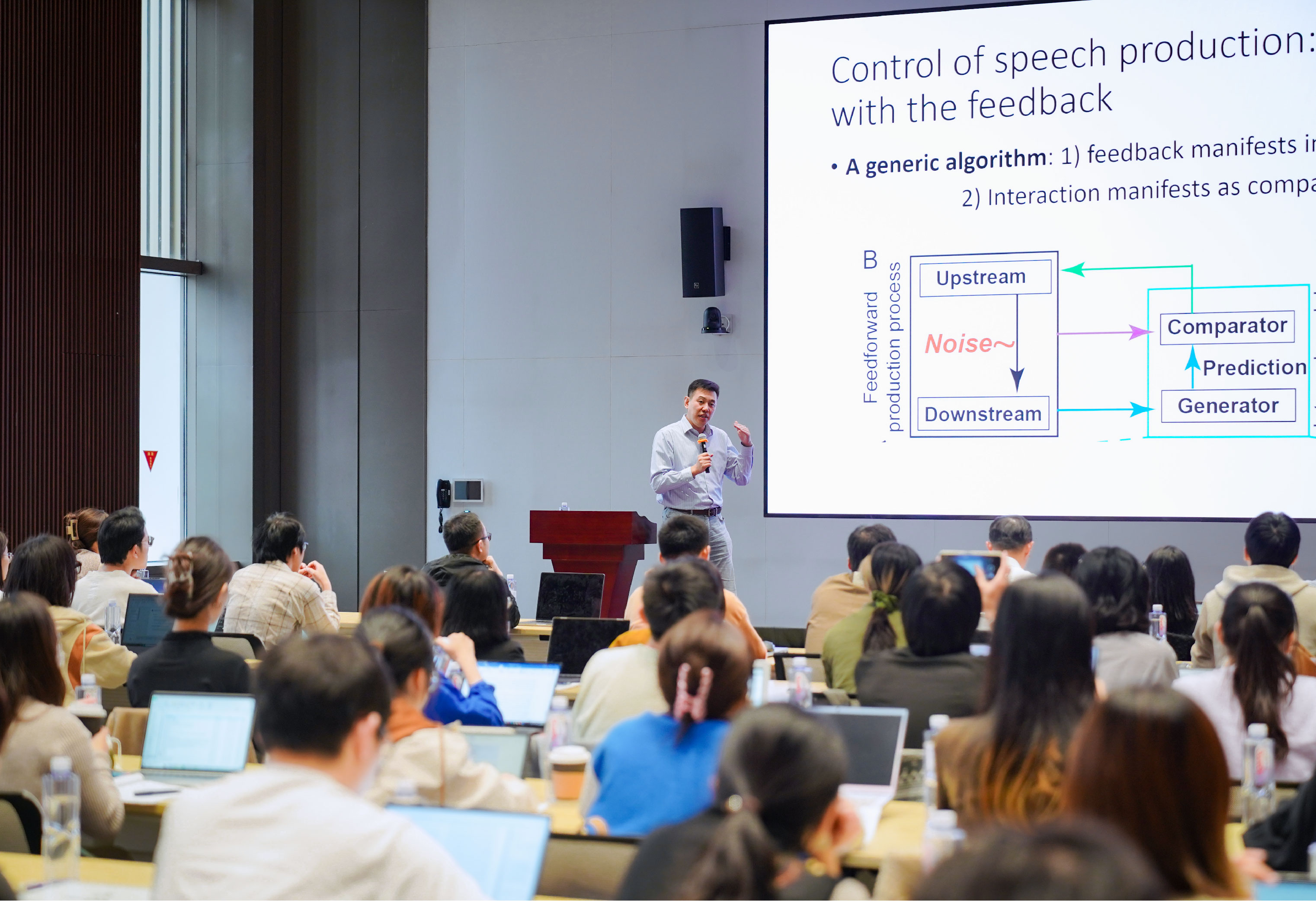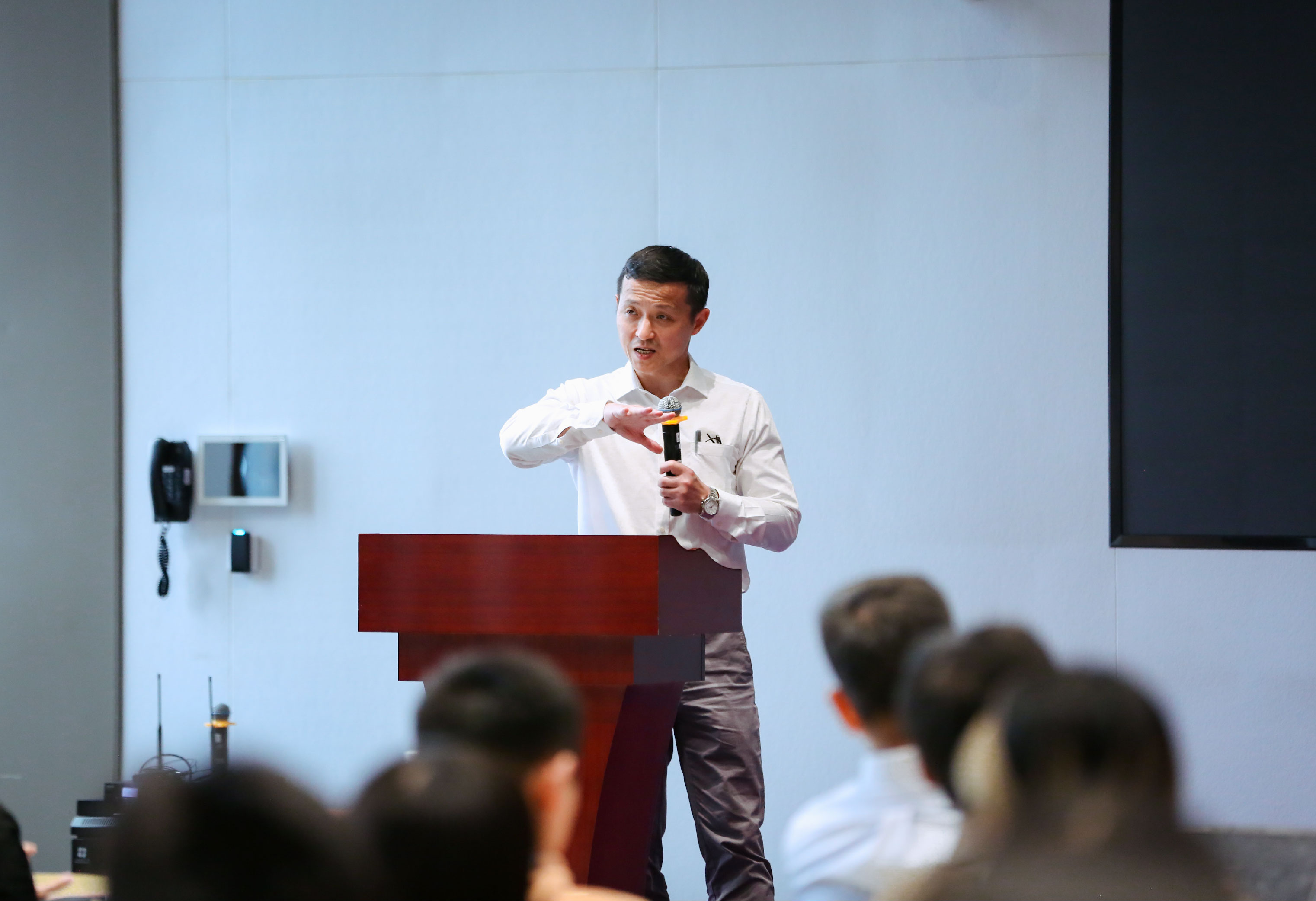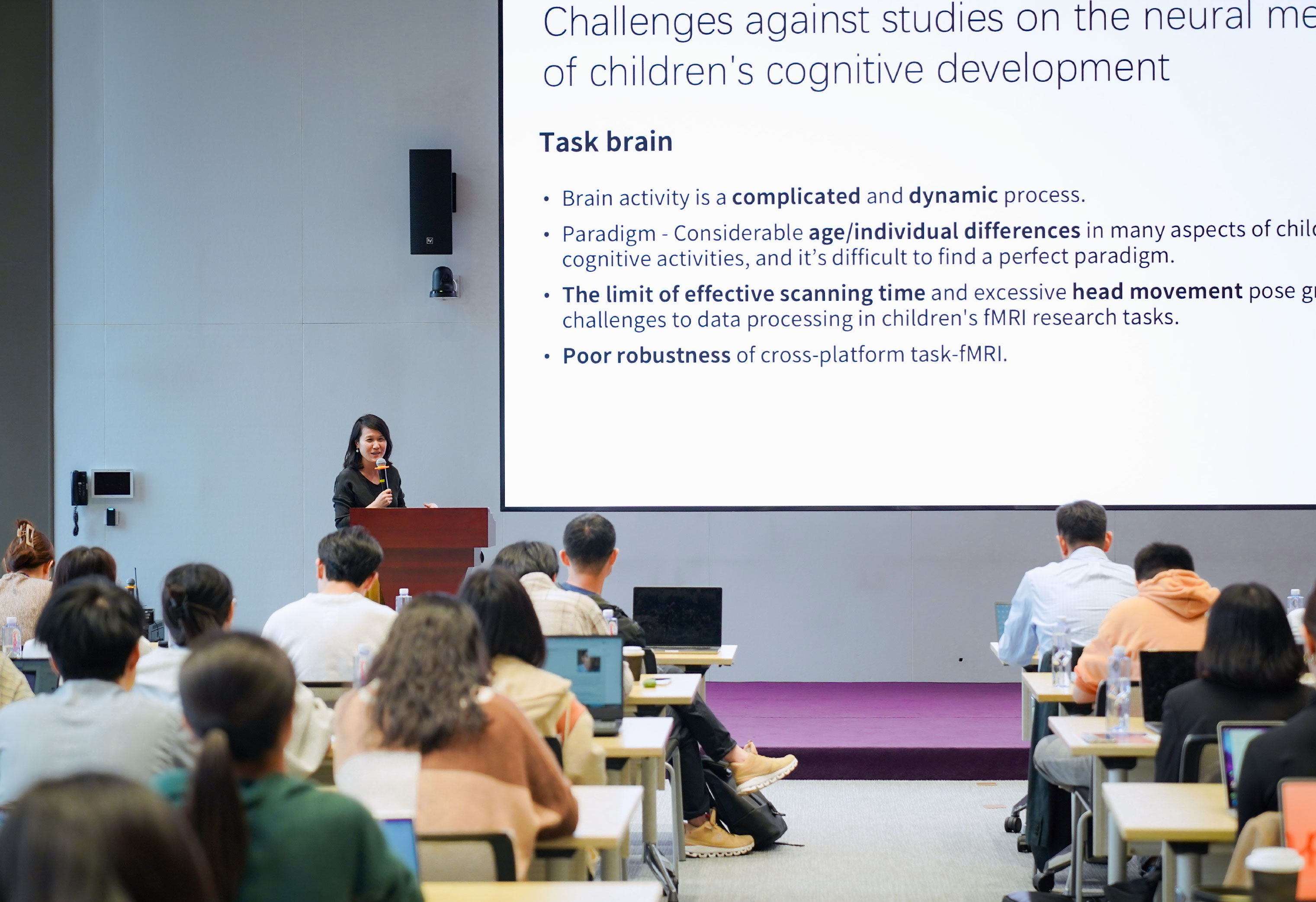Nov 10 2023
Published by
NYU Shanghai

Over 80 Shanghai-based researchers and students gathered at a workshop on November 8 hosted by the NYU-ECNU Institute of Brain and Cognitive Science at NYU Shanghai to exchange the latest neuroscience advances in the speech and language domain.
The workshop featured talks by professors from Huashan Hospital Affiliated with Fudan University, ShanghaiTech University, East China Normal University, and NYU Shanghai, covering a wide range of research topics, such as speech perception, production, and language comprehension, centering on basic research and extending to application and clinical aspects.
NYU Shanghai Associate Professor of Neural and Cognitive Sciences Tian Xing, a key member of the joint institute, warmly welcomed the participants to the University's New Bund campus, saying that the workshops such as this one play an important role for research exchange. “We hope to further promote interdisciplinary research in neuroscience and linguistics in Shanghai, enhancing Shanghai’s impact in this field both domestically and internationally,” he said.

Professor Tian Xing
The event also served as a platform for academic networking. “We can connect these ‘dots’ into lines and form a network, which will enable more concrete collaborations,” said ECNU Professor of Psychology Cai Qing, a key member of the joint institute. She offered a special welcome to the many graduate students in attendance. “We hope that through today’s workshop, you will not only learn the advanced research and knowledge in neuroscience and linguistics but also meet and engage with your peers and future collaborators,” she said.
The first keynote speaker, Dr. Wu Jinsong, who serves as chief physician and professor at the Department of Neurosurgery at Huashan Hospital Affiliated with Fudan University, delivered a speech titled “Decoding and Synthesizing Tonal Language Speech from Brain Activity.” He discussed brain research and technology development from the perspectives of brain protection to brain control. His talk covered the development and practice of the medical and research techniques, direct electrical stimulation, and progress in Brain-Computer Interface technology, a hot topic of late, providing distinct insights into the production of language from the perspective of a leading practicing physician.
 Dr. Wu Jinsong
Dr. Wu Jinsong
Professor Tian delivered a keynote speech titled “Speech Production and Control,” introducing his group’s work in understanding speech production and proposed his hypotheses within the framework of neuroscience and neurolinguistics regarding the control of speech production, hoping to inspire future research.
Professor Cai, who leads the ECNU Children’s Brain Imaging Center, gave a keynote speech on “Semantics in the Broad Context: How the Human Brain Processes Meaning?” sharing the center’s work on children’s brain studies and discussing the difference between the human brain and artificial neural networks at the semantic network representation level.
 Professor Cai Qing
Professor Cai Qing
The workshop also featured a diverse array of presentations from multiple researchers in these interdisciplinary fields. Assistant Professor Li Yuanning of ShanghaiTech University presented a talk on “Neural Coding and Computations Underlying Natural Speech Perception Across Languages”. Associate Chief Physician Lu Junfeng of Huashan Hospital Affiliated with Fudan University discussed “Neural Control of Lexical Tone Production in Human Laryngeal Motor Cortex”. Assistant Professor of Practice in Neuroscience Zhang Linmin of NYU Shanghai introduced her works on “Bridging Formal Semantics and Neurolinguistics: The Case of Monotonicity and Negation”. Associate Professor Huang Chu-Chung of East China Normal University gave a talk on “Revisiting the Human Language and Speech Production Network: A Tractography and Meta-Analytic Connectivity Modeling Study”.
“This workshop marks our first endeavor to bring together the talented researchers in Shanghai who are engaged in interdisciplinary studies of neuroscience and language. This initiative aligns with one of our joint institute’s featured research directions,” said Tian after the event. “We’re happy to see that throughout the workshop, not only the PIs [Principal Investigators] exchanged ideas, [but] students, and members from various labs and research groups also engaged in extensive communication and discussions. These interactions laid the groundwork for future collaborations on multiple levels,” Cai added. “We are looking forward to further advancing the integration of cognitive neuroscience, language, and the clinical fields through these joint efforts.”


